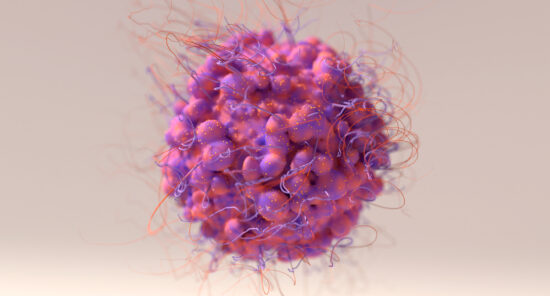Credit: Original article published here.
In a recent study, published in Thoracic Cancer, researchers evaluated the safety and efficacy of osimertinib plus bevacizumab in patients with non-small cell lung cancer (NSCLC) with brain metastases and epidermal growth factor receptor (EGFR) mutations.
According to the study’s authors, the combination was safe and effective as a first-line therapy among patients with NSCLC with EGFR mutations and brain metastasis. They noted this was, to their knowledge, the first study to report on this osimertinib with bevacizumab in this population.
Improved NSCLC Treatment With Osimertinib and Bevacizumab
The single-arm trial enrolled 52 treatment-naïve patients with NSCLC, of which 17 had EGFR 19 deletion mutations and 35 had EGFR L858R mutations. The primary end point of the study was median progression-free survival (mPFS), and secondary end points included median overall survival (mOS), response rates, and safety.
Researchers reported the osimertinib plus bevacizumab regimen demonstrated an objective response rate of 75.0% and a disease control rate of 96.2%. The participants had a mPFS of 17.0 months (95% CI, 11.46-22.54), while the mOS was not reached.
The mPFS was 20.0 months (95% CI, 14.56-25.44) in patients with EGFR 19 del mutations and 17.0 months (95% CI, 13.28-20.72) in those with EGFR L858R mutations (P=.844). Authors also noted the intracranial objective response rate was 82.7% and the intracranial mPFS was 22.0 months (95% CI, 2.92-41.08).
The most common adverse events were mild-to-moderate hand-foot syndrome, diarrhea, hypertension, and proteinuria. Grade III proteinuria and hypertension were observed in 3 and 5 patients, respectively, all of whom discontinued bevacizumab.
In closing, the study’s authors acknowledged more studies are needed to confirm their results; nonetheless, they concluded “osimertinib in combination with bevacizumab is effective and safe in patients with NSCLC and brain metastasis harboring EGFR-activating mutations.”
Related: Chemotherapy With or Without Immunotherapy in NSCLC


